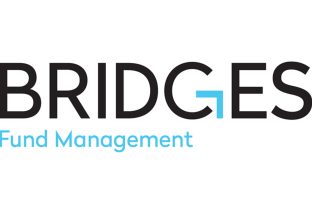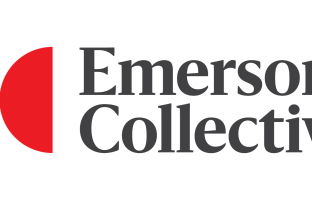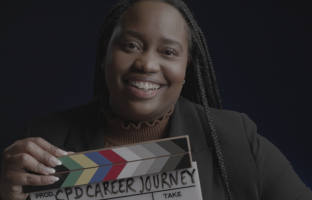With travel restrictions and physical distancing recommendations in place, organizations planning to hire full-time employees or interns in the coming year are reviewing their recruiting processes and seeking to innovate. For some, recruiting events once held in large hotel ballrooms or quaint coffee shops are being transformed into webinars, video calls, and 1:1 conversations. Other organizations are building on their already robust virtual recruiting practices and sharing ideas on to how to adapt. There are also new recruiting strategies being envisioned including videos, online office tours, and interactive remote experiences.
An important piece of the conversation around innovative recruiting is ensuring that recruiting events support diversity, inclusion, and belonging. When moving an event online, organizations need to evaluate their marketing efforts and the unique nature of remote interactions in order to counter the unconscious bias which can put candidates at a disadvantage.
The following recommendations for creating inclusive events are based on research from Harvard Business School faculty. They are designed to help organizations think through the details of their event planning and marketing to achieve their recruiting goals and create more diverse, welcoming, and successful organizations.
Attract a Diverse Applicant Pool
To create a welcoming environment in the early stages of your hiring process, it is critical to use inclusive language that invites candidates in. Educate team members who are writing event descriptions and invitations about removing gendered language, jargon, and idioms that can make potential candidates feel excluded. Just like your job postings, event descriptions are an important marketing tool and should convey an inclusive message if you hope to build a more diverse team.
We also recommend explicitly stating your company’s commitment to diversity and inclusion within event descriptions. Link to Employee Resource Groups, codes of conduct, and other company-wide initiatives in order to help candidates understand how your organization supports its employees.
In addition, utilize filters within the HBS resume database to identify students involved in various student clubs including the African American Student Union, Asian American Business Association, Black Investment Club, Latino Student Organization, PRIDE, Women in Investing Club, and the Women’s Student Association. Organizations can email clubs leaders directly, but personalized - not mass - invitations to students are meaningful and help to build relationships.
Take Action Against Unconscious Bias during Events
As discussed in our article on unconscious bias in interviews, helping employees involved in the hiring process uncover their own implicit biases can make a significant impact on how candidates are evaluated. Recruiting events are a different but equally important evaluation tool used in the hiring process and naming bias and actively addressing it is imperative so that candidates are given equal opportunities to succeed.
While recruiting remotely, candidates will be virtually attending events from various living situations and may not have access to quiet space or may not have a computer that is compatible with Zoom virtual backgrounds. Therefore, it is important to discuss with employees hosting virtual informational conversations the need to focus on the content of conversations with candidates rather than a candidate’s physical location or any unavoidable background noise. Video conference sessions are now the norm in many industries, but it was a quick transition for organizations without a history of remote work. More education and awareness are needed so that individuals are conscious of what factors are skewing their evaluation of “professionalism” or “culture fit" versus focusing on the pertinent qualifications and skills that will determine success.
Another way unconscious bias can present itself is in the delivery of recruiting materials. For example, video-based events that aren’t accessible to deaf and hard-of-hearing candidates may unintentionally indicate a company’s bias against these individuals. Including closed captioning on videos opens your message up to a broader audience of candidates and is compliant with the Americans with Disabilities Act.
Create Equitable Group Recruiting Events by Establishing Process
Group recruiting events offer an opportunity for employers to get to know candidates, answer questions, and efficiently share information outside of a 1:1 meeting. However, these events can also lend themselves to bias that excludes and discriminates against individuals and groups when not unchecked.
An example of bias in a group setting comes from our classrooms at Harvard Business School and the processes put in place in 2009 to close the gender grade gap. Up until this point, female students were consistently underrepresented in the top tiers of academic achievement at HBS in large part due to classroom participation grades. To address bias in the classroom, scribes were brought in to take notes during discussions so that professors could review comments after class. This next layer of evaluation made it possible for professors to uncover unconscious bias that may have led them to weigh comments from male students more heavily. This also helped professors better understand who they were calling on to participate in class in order to provide more equal opportunities in discussion.
Lessons learned from the HBS experience can be applied to recruiting events as well. Be aware of allotting candidates equal airtime to ask questions and pitch themselves when conducting group conversations. To do this you can institute a practice of using the hand raise feature in video meetings before participants take themselves off mute to contribute. A member of your team can also serve as the meeting facilitator to smoothly and fairly manage discussions.
Also keep in mind that not all candidates will be able to engage in recruiting events in real time because they are located in different time zones or are managing multiple responsibilities that may include caring for children or other family members. To engage candidates who can’t attend events live, solicit questions before a virtual event and offer recordings of events available for interested candidates to view later. Asynchronous engagement provides the added benefit of giving employers the ability to review participation and gauge interest without solely relying on memory of the conversation, much like the use of scribes at HBS.
Representation Matters
Another critical element of inclusive events is choosing who will represent your company and being cognizant of sharing diverse voices across race, gender, ethnicity, disability, and other social and cultural identifiers.
Often organizations will select which employees serve as representatives at events based on scheduling and availability. Moving events online eliminates the need for travel and creates opportunities for more representatives from your organization to participate and share their perspectives. Research has shown that top candidates prefer organizations with diversity because diverse teams have proven to be more successful and innovative. Making diversity a priority therefore helps your team succeed in your current work and in future projects as you recruit new impactful hires.
Furthermore, psychological safety is an important factor in attracting and retaining great employees. As Professor Amy Edmondson notes, a psychologically safe workplace is one in which “Individuals feel they can speak up, express their concerns, and be heard.” Events give organizations the opportunity to show psychological safety in their company culture by giving employees a platform to share their individual stories and by building personal connections. Representation in recruiting helps candidates see how they would be able to bring their authentic selves to work and both fit and thrive in your company.
As you plan your recruiting events for 2022, connect with your industry specific Recruiting Relations Manager to discuss your goals. We look forward to working with you to create remote recruiting experiences that will help you engage with candidates and make diversity and inclusion a top priority.







